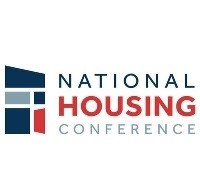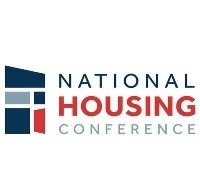Saving for a home low on the list of financial priorities for cash-strapped millennials
Young people focused on meeting monthly bills and paying off credit card and student loan debt

Washington, D.C. – (RealEstateRama) – Younger Americans may want to save for a home, but many are struggling just to make ends meet each month. Paying off credit card and student loan debt is taking precedence over putting away money for a down payment among millennials, according to a new survey from NeighborWorks America.
National student loan debt has reached a record $1.6 billion, with college undergraduates who took on debt leaving school with an average of $28,650 in student loans in 2017. And credit card delinquency rates hit a seven-year high in the first quarter of 2019 largely because many borrowers in their 20s are struggling to keep up with their minimum payments, according to a new report from the Federal Reserve of New York.
Among the youngest group surveyed by NeighborWorks America, millennials (ages 18-34) reported saving for a home down payment far down on their list of priorities, with 34 percent saying paying off student loans is their top priority; 31 percent said paying down credit card debt is critical. Sixty-nine percent would consider renting over buying a home.
The survey offers insight into patterns and attitudes among Americans regarding homeownership and renting in the nation and the impact of debt and other dynamics on buying a home vs. renting. The study was conducted in April and May with an online panel of 1,000 U.S. adults ages 18 and older.
“We understand young adults struggle with student loans and other obstacles to buying a home and to financial well-being. If they visit a financial coach early in their professional lives, they can navigate their financial lives responsibly,” said NeighborWorks America President and CEO Marietta Rodriguez. “Financial coaches help people set and reach goals, such as living debt-free, and can help consumers create and maintain a budget to spend and save for the things that are important and pay back loans on time.”
The unemployed, those without a college degree and those making less than $40,000 a year are struggling to paying off debts, too, the survey says. And though two-in-three Americans say they have money set aside for a rainy day, only one-in-four are “very confident” when it comes to their ability to withstand a financial emergency.
Seeking help with finances
One-third of Americans surveyed said they are likely to seek out help about homeownership over the next year or two, down significantly from 2018, when more than 50 percent said the same.
Some good news: Millennials were the most likely group across the survey (60 percent) to say they may seek counseling about homeownership this year from a nonprofit organization. Overall, 53 percent surveyed said they were unsure if there are any education programs in their community to help with the home buying process.
Overall, a majority (70 percent) of the 1,000 surveyed called the home buying process complicated, but believe owning a home increases financial stability (77 percent) and they would feel less successful (52 percent) if they never purchase their own place, down from 60 percent in 2018.
NeighborWorks America recommends that people interested in homeownership always work with a housing counselor as a first step. A housing counselor can help improve their credit score, provide information about down payment assistance and down payment assistance programs, and help evaluate their situation and create the right plan.
For more information on the NeighborWorks America survey, visit www.neighborworks.org/housingsurvey.
About NeighborWorks America
For 40 years, Neighborhood Reinvestment Corp., a national, nonpartisan nonprofit known as NeighborWorks America, has strived to make every community a place of opportunity. Our network of excellence includes nearly 250 members in every state, the District of Columbia and Puerto Rico. NeighborWorks America offers grant funding, peer-exchange, technical assistance, evaluation tools and access to training, as the nation’s leading trainer of housing and community development professionals. NeighborWorks network organizations provide residents in their communities with affordable homes, owned and rented; financial counseling and coaching; community building through resident engagement; and collaboration in the areas of health, employment and education. In the last five years, our organizations have generated more than $34 billion in investment across the country.
Contact:
Lindsay Moore
202-760-4059
@neighborworkspr

















